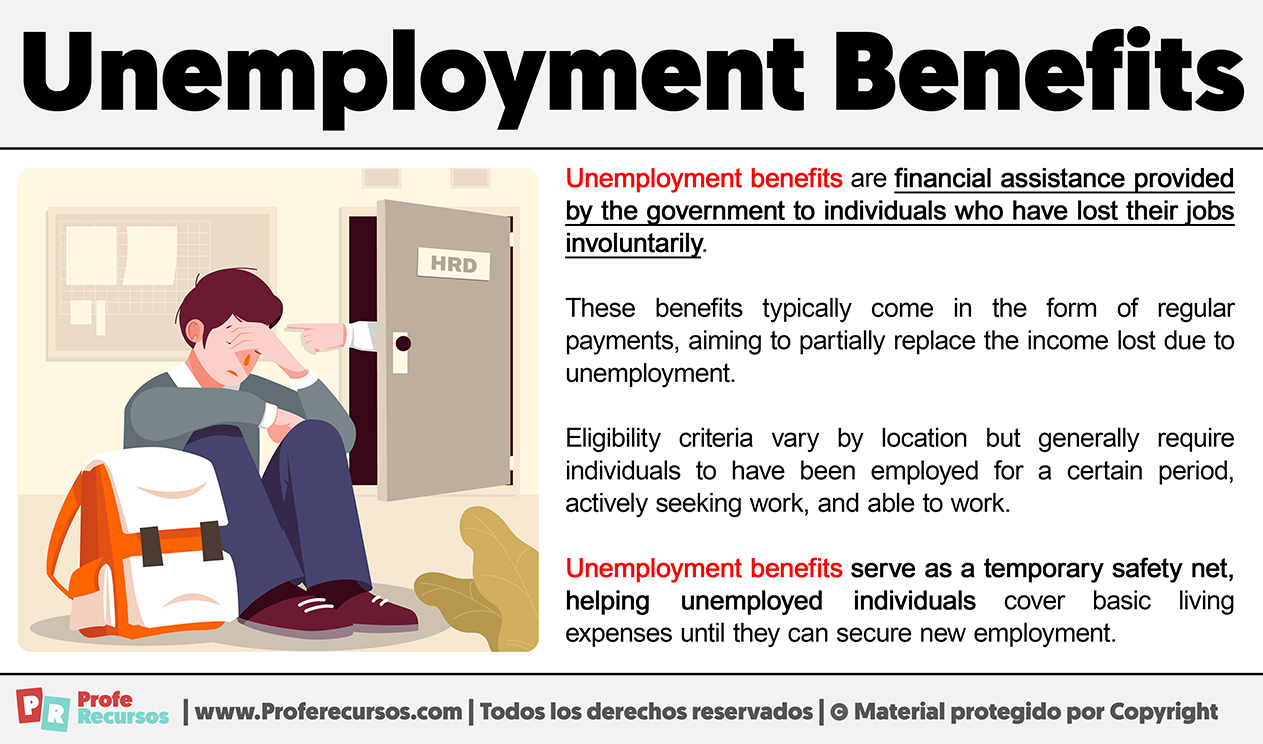Pursuing higher education can be a rewarding and transformative experience however, many students face financial challenges while juggling the demands of academics and daily living expenses. In times of job loss or unemployment, students may find themselves in a vulnerable position and this is where unemployment benefits for students can provide crucial financial support during their college journey. In this article, Newsmartz will explore the importance of unemployment benefits for students and provide guidance on how to navigate through the process of accessing this assistance.
Unemployment Benefits for Students: Navigating Financial Support During College
I. Understanding Unemployment Benefits for Students:
- Definition and Purpose: Unemployment benefits are financial resources provided by the government to individuals who have lost their jobs through no fault of their own. These benefits are designed to help individuals maintain a basic standard of living while they search for new employment opportunities.
- Eligibility Criteria: To qualify for unemployment benefits, students must typically meet certain requirements. These may include being enrolled in an accredited educational institution, actively seeking employment, and being available to work.
II. The Benefits of Unemployment Benefits for Students:
- Financial Stability: Unemployment benefits can provide students with a crucial financial safety net during periods of job loss. This can help cover living expenses such as rent, utilities, groceries, and transportation, allowing students to focus on their studies without the added stress of financial strain.
- Focus on Education: By alleviating financial burdens, unemployment benefits enable students to concentrate on their educational pursuits. This can improve academic performance and increase the likelihood of completing their degree programs successfully.
- Career Exploration: During periods of unemployment, students have the opportunity to explore different career paths and gain valuable work experience through internships, part-time jobs, or volunteer work. Unemployment benefits can assist in supporting these endeavors.
III. Navigating the Process of Accessing Unemployment Benefits:
- Research and Documentation: Students should begin by researching the specific unemployment benefits available in their jurisdiction. They should gather all necessary documentation, such as proof of enrollment, identification, and records of previous employment.
- Filing a Claim: The next step is to file an unemployment claim. This typically involves completing an application form and providing relevant information about one’s employment history, education, and the reason for job loss. Students should follow the instructions provided by their local unemployment office or apply online if available.
- Meeting Requirements: It is essential for students to understand and fulfill all the requirements associated with receiving unemployment benefits. This may include actively searching for employment, attending job fairs or workshops, and reporting any job offers or income earned during the benefit period.
- Reporting Changes: Students must promptly report any changes in their circumstances, such as changes in enrollment status, new employment, or changes in financial resources. Failure to report changes may result in the discontinuation of benefits or potential penalties.
IV. Additional Financial Resources for Students:
- Scholarships and Grants: Unemployment benefits for students should explore various scholarship and grant opportunities that can help reduce educational expenses. Many organizations offer financial aid based on academic merit, financial need, or specific fields of study.
- Student Loans: In cases where Unemployment benefits for students benefits may not cover all expenses, students can consider federal or private student loans as a means to bridge the gap. However, it is important to carefully consider the terms and repayment options before taking on any loan obligations.
- Work-Study Programs: Many colleges and universities offer work-study programs that provide students with part-time employment opportunities on campus. These programs can help students earn income while pursuing their studies.
V. Importance of Career Services and Internship Programs:
- Career Services: Students should take Unemployment benefits for students of the career services offered by their educational institutions. These services can provide guidance on resume writing, interview skills, and job search strategies, increasing the chances of securing employment.
- Internship Programs: Internships offer valuable hands-on experience and networking opportunities. They can also lead to full-time employment or provide references that strengthen future job applications. Career services often have resources to help students find internship opportunities.
VI. The Role of Budgeting and Financial Literacy:
- Budgeting: Students should develop Unemployment benefits for students skills to effectively manage their financial resources. Creating a monthly budget that includes income from unemployment benefits, scholarships, part-time jobs, and other sources can help students track expenses and make informed financial decisions.
- Financial Literacy: It is crucial for students to enhance their financial literacy skills. Understanding concepts such as interest rates, credit scores, and debt management can empower students to make wise financial choices and build a solid financial foundation for their future.
Conclusion:
Unemployment benefits for students can provide a lifeline during challenging times, ensuring financial stability while pursuing higher education. By understanding the eligibility criteria, navigating the application process, and exploring additional financial resources, students can successfully access these benefits. Additionally, leveraging career services, participating in internship programs, and developing strong financial management skills will enhance students’ overall college experience.
Remember, Unemployment benefits for students are not permanent solutions, but they can significantly alleviate financial burdens and provide the necessary support for students to thrive academically and professionally. So, if you find yourself facing job loss or unemployment as a student, don’t hesitate to explore the possibilities of unemployment benefits and take proactive steps to navigate the process and access the financial support you need to continue your educational journey.



:max_bytes(150000):strip_icc()/how-to-calculate-your-unemployment-benefits-2064179-v2-5bb27c7646e0fb0026d9374f.png)